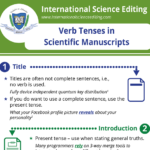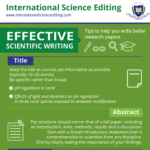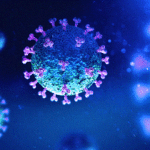Make your writing clear Say what you mean For example, the sentence The observed changes in the gut microbiota caused inflammation in the mice. suggests direct causation. However, if this was an observational study, the two outcomes were probably observed to occur together, but direct causation was not demonstrated. If so, the sentence should be […]
Verb tenses in scientific manuscripts (infographic)
A key aspect of producing a well-written scientific manuscript worthy of publication is the use of appropriate verb tenses in the different sections of the manuscript. In this infographic, we discuss when, where, and how to use the different verb tenses. The infographic contains the following text: Title Titles are often not complete sentences, i.e., […]
Effective scientific writing – Tips to help you write better research papers (infographic)
In this infographic, we provide some useful tips to help you write better research papers. The infographic contains the following text: Title Keep the title as concise yet informative as possible (typically 10-20 words). Be specific rather than broad. pH regulation in coral ✘ Effects of light and darkness on pH regulation in three coral […]
How to prevent plagiarism
In this blog, our guest blogger, Professor Emeritus Dolores Takemoto from Kansas State University discusses plagiarism in scientific documents: what it is, what the penalties are (even if unintentional), and how to avoid it. Merriam-Webster’s online dictionary defines plagiarism as “to steal and pass off (the ideas or words of another) as one’s own: use […]
Ongoing Support for the Scientific Research Community in the Global Effort to Contain COVID-19
The current COVID-19 pandemic is having a huge impact on people across the globe and in these unprecedented times we consider it more important than ever that we continue to support the publication of relevant and timely research. The ISE team are committed to eliminating the communication barriers in academic publishing so that research can […]





